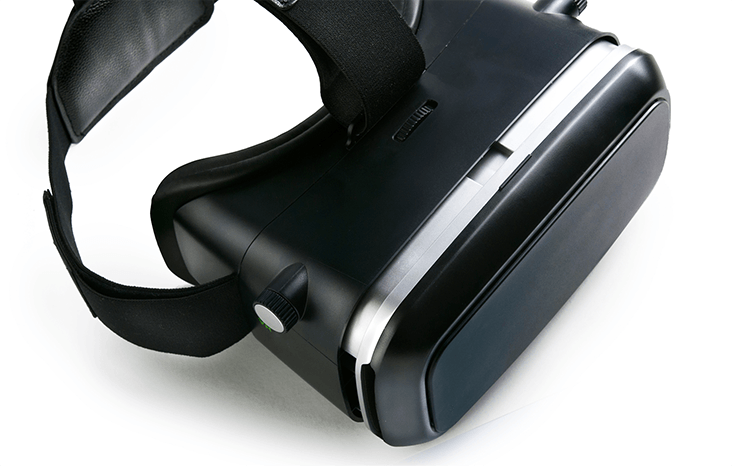Worldwide Sites
You have been detected as being from . Where applicable, you can see country-specific product information, offers, and pricing.
Keyboard ALT + g to toggle grid overlay
We’re currently in Virtual Reality’s (VR) infancy. The industry is extremely healthy and with the first generation of headsets in the market, we feel it’s going to be a great ride. Room-scale tracking and full hand control is now expected from computer tethered VR experiences, while mobile VR has led the way in popularity with platforms from YouTube and Facebook.
We recently spoke with Boo Wong, an executive producer for The Mill, an interdisciplinary innovation space that is exploring ways to use technology to tell interesting stories. Wong gave us five insights for the future of VR and how indie developers can make a difference in this bourgeoning market:
Experiences Will be Developed for Multiple Platforms.
The industry hasn’t rallied around a particular platform, and it doesn’t look like it’s headed that way. Developers will need to develop games for a primary platform and then adapt the content for other media. People are already developing 360 content for websites and soon that content will need to be ported over to VR—and finally augmented reality. Indie developers should be looking at various ways to tell the same story using multiple platforms and technologies.
VR Will Combine Immersive and Interactive Experiences.
Most content requires the viewer to sit and experience something, but we’re moving toward content that requires you to get up and interact with it. VR transports an active spectator to the middle of an exciting story so that they are part of the experience. Suddenly, directors are being asked to give up control and pass it off to the player who now gets to choose what he or she wants to look at and where they want to go. Sure, developers can provide audio clues and action points but they’re relying on the player to catch those cues. Of course, this is not new in gaming. Open worlds exist, but VR allows developers to combine an interactive experience with a completely immersive world.
Titles Will Be Developed Specifically for VR.
Traditional AAA studios will port over existing titles, but over time we need to develop titles specifically for VR. It’s important that we create a specific vocabulary for VR and not just treat it as just another HD screen that’s closer to your face. VR is a unique medium in that it’s a state of being that transports you to a different world. It’s ripe for unique storytelling.
Unhealthy Perceptions Will Go Away.
VR technology will get easier as people grow up with it. People still get sick on roller coasters, and older viewers didn’t understand soft editing when MTV came around. Generations that grow up with the technology will have an easier time adapting to using it. At the same time, the technology will get more comfortable as headsets become less cumbersome, refresh rates on screens get better and resolution improves.

Indie Developers Will Lead the Way.
Indies can churn out titles quickly while it takes a big studio years to launch a new title. Fortunately, indies are already established on mobile platforms, and that’s where VR is going to catch on first. People are already viewing VR content with Google Cardboard and Samsung Gear VR and there’s an opportunity for indie developers to leverage mobile expertise to push VR. Indie developers need to work fast, fail fast and learn fast on this new platform.
We’ve spent centuries building worlds for people to read about, watch, and imagine. People are going from listening to something, to reading something, to watching something, to being in something.
